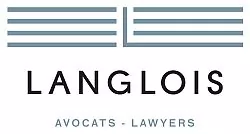On April 19, 2023, in Banque de Montréal c. Chevrette, the Court of Appeal rendered a noteworthy decision on the scope of section 148 of the Consumer Protection Act ("CPA")1 and the pricing of goods under instalment sale contract. The decision was rendered in connection with a consumer class action against two financial institutions, a manufacturer and distributors of motor vehicles (collectively, the "appellants") seeking to sanction the inclusion of a trade-in vehicle's negative equity when calculating the sale price of a new vehicle under such a contract.
In addition to its teachings on the scope, interpretation and limits of section 148 CPA, the decision is an important reminder that a court ought to decide a question of law at the authorization stage if the outcome of the class action depends on it.
A. Background
The plaintiffs applied for authorization to institute a class action after entering into instalment sales contracts for the purchase of motor vehicles with the financial institutions. During financing, the balance still owed by the plaintiffs on their trade-in vehicles (negative equity) was added to the total sale price, raising the value of the new contracts in a manner allegedly contrary to section 148 CPA:
148. The contract of instalment sale must relate only to goods sold on the same day.
The plaintiffs maintained that including the negative equity of a trade-in vehicle in an instalment sale contract for a new vehicle constitutes illegal "refinancing" of a debt.2
B. Superior Court judgment
The Superior Court, per Justice Nancy Bonsaint, acknowledged that the issue of whether section 148 CPA prohibits including negative equity on a trade-in when financing a new vehicle is a pure question of law to be decided immediately.
However, the Superior Court refused to deal with this issue at the authorization stage, holding that the class action was not predicated solely on this question and that regardless of the answer, the question would have no bearing on the plaintiffs' second cause of action alleging that the appellants had used illegal business practices.
The Superior Court ruled that the plaintiffs had successfully established an arguable case under section 148 CPA, and deferred the question of law to the merits stage:
[TRANSLATION]
[56] Moreover, if "refinancing" is not prohibited by section 148 C.P.A., we would still have to consider whether the defendants' business practices comply with sections 219, 224 and 229 C.P.A. In other words, a yes on the first question at issue doesn't necessarily entail a yes on the second question. Since the second question is not a pure question of law, it must be examined on the merits, in light of the alleged facts and the applicable law. In short, an affirmative answer to the first question at issue does not decide the outcome of the entire class action.
[57] Given that here, the question of law does not decide the outcome of the entire class action, the Court, in its discretion, defers this question to the merits stage and holds that the plaintiff's proposed legal syllogism regarding a violation of section 148 C.P.A. constitutes an "arguable case".
The Superior Court then turned to the second cause of action, disregarding the fact that the plaintiffs had withdrawn their arguments under sections 219 and 228 CPA. It held that the plaintiffs' allegations that they had signed contracts containing inaccurate information, or that they had not been informed of the refinanced amount and credit charges, ought to be taken as proven. The Superior Court added that these allegations support the conclusion that the information in the contracts might not comply with the business practices set out in the CPA. Here too, the Superior Court deemed that the plaintiffs had an arguable case.
C. Court of Appeal decision
The appellants argued that the question of law as to the interpretation of section 148 CPA should have been addressed, and that the Superior Court had ruled ultra petita in dealing with sections 219 and 228 CPA, which were no longer at issue. They also argued that this error had skewed the Superior Court's analysis regarding the application of section 224(c) CPA, which prohibits merchants from charging a higher price than advertised. They maintained that the price difference in the contracts in dispute was due solely to the negative equity of the trade-in vehicle, something the respondents had admitted at the appeal hearing.
The Court of Appeal noted that the remedies under sections 148 and 224(c) overlap, and that section 148 is therefore the [translation] "only real basis for the class action".3 This finding is of crucial importance in the Court of Appeal's view, as it means the Superior Court ought to have decided this question at the authorization stage in order to properly fulfill its screening role:
[TRANSLATION]
[15] Section 148 CPA is therefore the only real basis for the class action. This is an important finding given the trial judge's conclusions. Indeed, although she acknowledged that this was a pure question of law, she refused to determine whether this provision prohibits negative-equity trade-ins, holding that it was not the sole basis for the class action and would not decide its entire outcome. The appellants believe that she erred and that she could—and indeed should—have decided this question to properly fulfill her screening role for each of the grounds invoked.
After analyzing and interpreting the scope of section 148, the Court of Appeal concluded that this provision serves to determine how payments are allocated and when ownership is transferred to the consumer. Accordingly, it ruled that this section does not prohibit negative-equity trade-ins, and that since the trade-in value must feature in the contract, the price paid by the consumer will necessarily be higher than the advertised price without there being any violation of the law.
The Court of Appeal also noted that it falls on the legislature, not the courts, to address societal problems that exacerbate consumer overindebtedness.
Since the plaintiffs' case under section 148 CPA was deemed baseless, and since this section was the sole basis for the proposed class action, the Court of Appeal overturned the Superior Court judgment and dismissed the application for authorization to institute a class action.
The Court of Appeal's decision removes all ambiguity around how section 148 CPA should be applied and clears the way for sellers to continue including negative equity in sales involving trade-ins.
It also emphasizes the importance of properly identifying and characterizing the actual issues in dispute to properly rule on an application for authorization to institute a class action. This is a stage where one ought not overlook the applicable law in light of its actual parameters.
Footnotes
1. CQLR c P-40.1
2. As described by the Court of Appeal, [translation] "[t]his practice, commonly referred to as "balloon financing", allows a seller to include the negative equity of a trade-in car in the price of the vehicle sold", para. 5.
3. Court of Appeal decision, para. 15.
The content of this article is intended to provide a general guide to the subject matter. Specialist advice should be sought about your specific circumstances.


